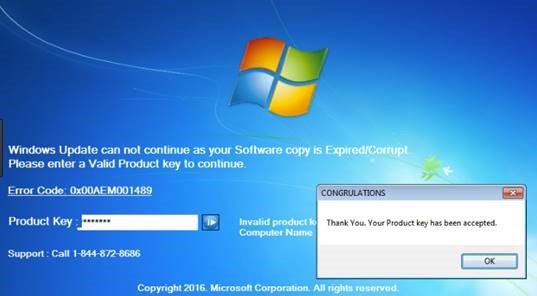How to remove a Virus, Worm, a Trojan, or other Malware
Back To Online Support
If you have read the newspaper, or watched the news, you will know about the computer viruses that has been circulating recently.
Two major examples of these are the Wannacry ransomeware (May 2017) and the latest Petya ransomeware (June 2017).
These are those malicious programs that once they infect your machine will start causing havoc on your computer.
What a lot of people do not know is that there are many different types of infections that are categorized in the general category of Malware.
Below are some examples:
Malware
Malware is programming or some type of files that are purposely developed for doing harm.
Malware includes computer viruses, worms, Trojan horses, spyware, hijackers, and certain types of adware.
Ransomware
Ransomware are programs that encrypts the files on your computer and then ask for a ransom in order to decrypt them.
The ransom is typically in a digital currency called Bitcoins.

Adware
A background program that generates pop-ups on your computer or displays advertisements.
Please remember that there are legitimate ads.
Some free software use ads as a way of generating some sort of income.

Technical Support Scams
Technical Support Scams are programs that pretend to be an security alert from Microsoft or another company.
These fake alerts show that something is often wrong with your computer and that they locked you out of it until you call a phone number or enter the information that is required.

Backdoor
A program that allows a user to execute commands and tasks on your computer without your permission.
These types of programs are typically used to launch attacks on other computers, distribute copyrighted software or media, or hack other computers.
Hijackers
A program that attempts to hijack certain Internet functions like redirecting your start page to the hijacker's own start page, redirecting search queries to a undesired search engine, or replace search results from popular search engines with their own information.
Spyware
A program that monitors your activity or information on your computer and sends that information to a remote computer without your knowledge.
Most often used to retrieve banking details or important passwords
Virus
A program that when run, has the ability to self-replicate by infecting other programs and files on your computer.
These programs can have many effects ranging from wiping your hard drive, displaying a joke in a small box, or doing nothing at all except to replicate itself.
These types of infections tend to be limited to your computer and do not have the ability to spread to another computer on their own.
Worm
A program that when run, has the ability to spread to other computers on its own using either emailing techniques to email addresses found either on your computer or by using the Internet to infect a remote computer using known security holes.
Use an anti-virus and anti-malware programs to remove and guard yourself from infections
Make sure you are using an updated anti-virus program.
Some common antivirus programs offer a 30day trial period in which to use their services.
- Kaspersky Anti-virus
- AVG
- Avast
- Bitdefender
- Microsoft Security Essentials
How to protect yourself
The best way to protect yourself from this happening to you is to take proper care and precautions when using your computer.
Make sure you have updated antivirus, malware and spyware removal software running, also make sure that you are downloading and installing all the latest updates to your operating system, a firewall, and only open email attachments that you know are safe.
Regards,
The iSAT Team
Back to top